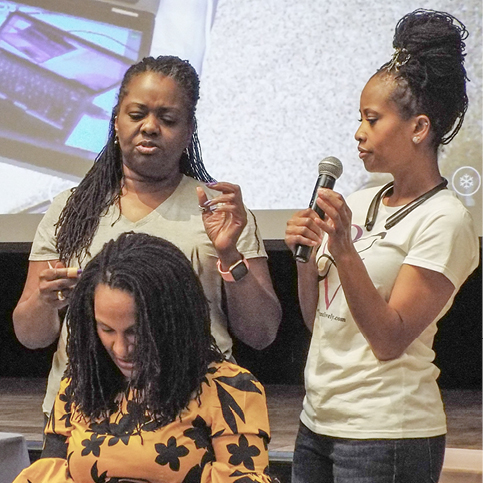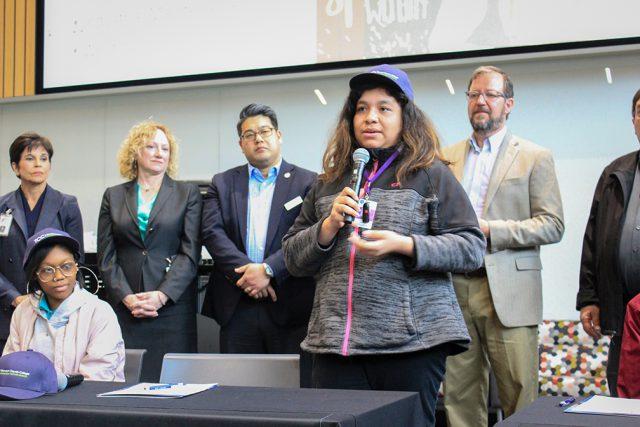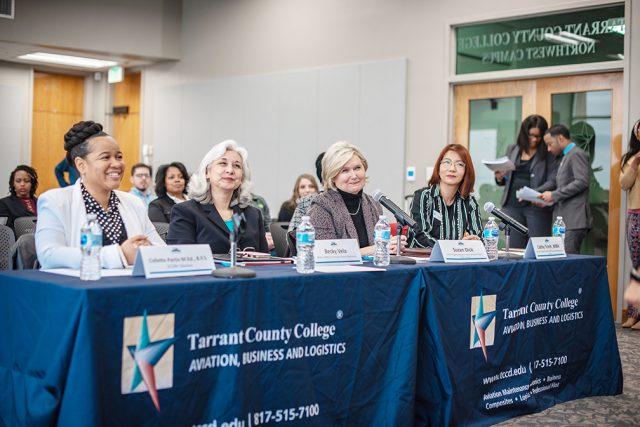By Monica Brigham/reporter
Spike Lee’s musical School Daze displays on a screen as characters belt out songs about good and bad hair, whether having dark or fair skin during the Black Hair with Flair event. Dozens of anxious students were excited about the event, which was on how to work with the versatility of black hair.
NE speech instructor A’isha Malone stands in as a model during a loc-tightening demonstration. Audience members gaze at the screen as a tiny camera magnifies the latch hook tool Gordon uses to complete the interlocking method used for loc tightening, a technique used to maintain dreadlocks and similar hairstyles.
“Unlike braids, you do not have to take sisterlocks completely down,” Gordon said. “They can be tightened at the root every four to six weeks.”
According to Gordon, each tightening session takes a minimum of three hours depending on how grown out the root is as the minimum number of locs on a person’s head is 400.
Good hair is healthy hair, the speakers said in Center Corner. African-American entrepreneurs Keisha Stewart, Gordon and LaShaunda Robinson united on Feb. 21 to discuss the distinction between natural and processed hair.
“Natural, straight, transitioning or whatever stage you are in life, healthy hair is good hair,” certified Sisterlocks consultant Keisha Stewart said.
All ethnic backgrounds had the ability to learn from the speech.
“I want to help you embrace the hair journey with confidence and beauty,” Gordon said. “Embrace your journey and what is best for you.”
LaShaunda Robinson, known as the 5 a.m. stylist, informed the audience that a hairstylist can determine health patterns based on hair. While stylist are not doctors, they pride themselves on making a client feel better internally and externally.
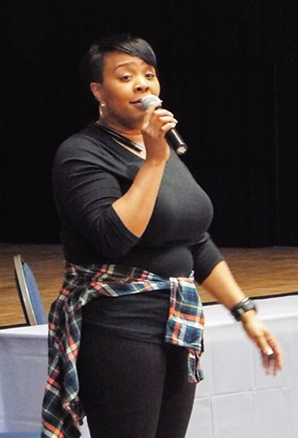
“I have 4c hair, I drink about a gallon of water a day, I properly moisturize in the morning and at night and I still have dry hair,” NE student Alexandria Walker said. “And I wear a bonnet at night, what is my problem?”
Presenters educated the audience on the importance of proper hair care products and the difference between those offered in the store and those offered by hair care professionals.
“When you purchase from a professional hairstylist that is knowledgeable and knows what’s going on with your hair, then a little product goes a long way,” Robinson said.
Stewart, along with her husband, created their own line of natural based oils for clients to use, and she encourages the audience to research products before placing it on their hair.
“What goes in your body is important, if you put the wrong things in your body you will not get the results you are looking for,” Stewart said.
In recent years, students from different backgrounds have joined the dreadlocks trend, some with little success.
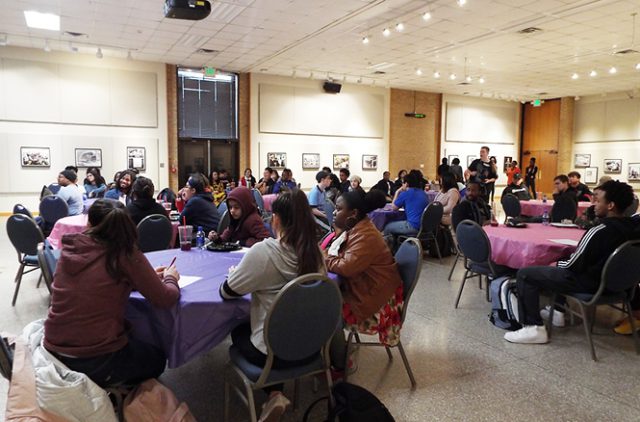
Members of the panel said differences in hair textures cause other ethnic backgrounds to have a harder time achieving true locs.
Students left Center Corner with a reminder that all hair is different. Celebrating the nuances of black hair and respecting styles, natural or processed opens the dialogue of another facet of acceptance during Black History Month.


























